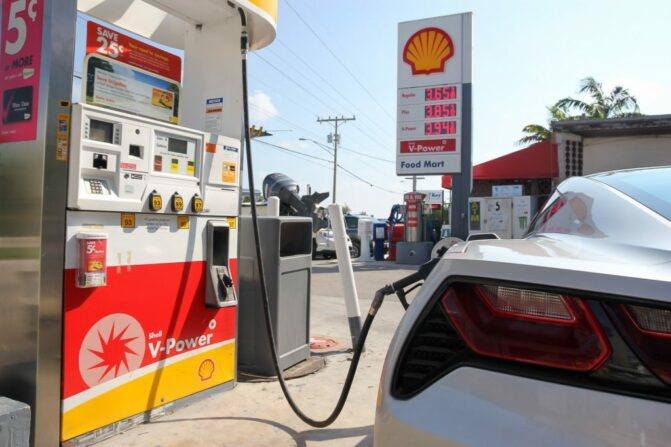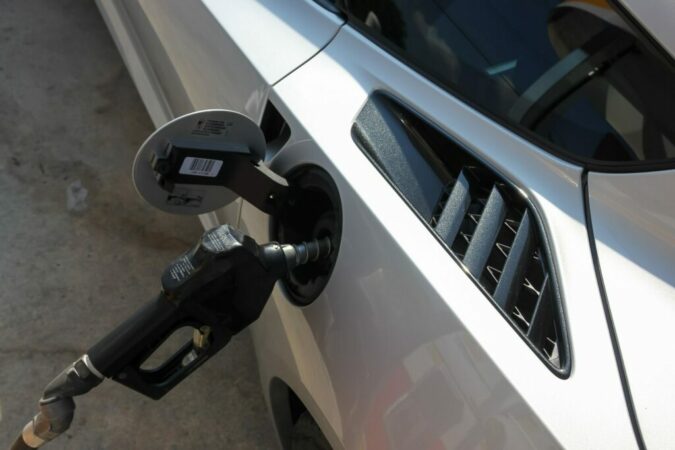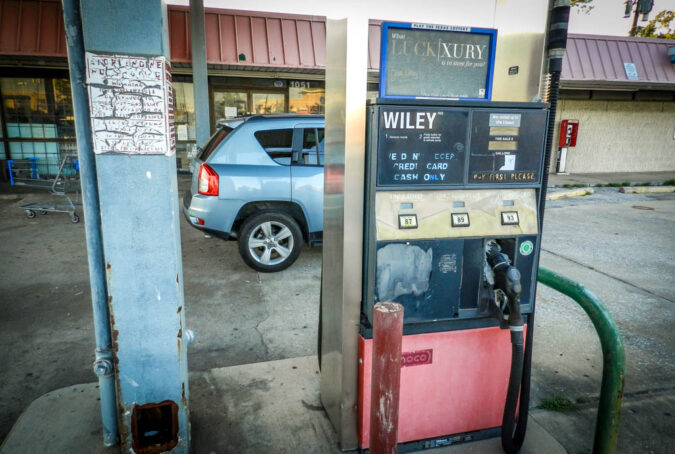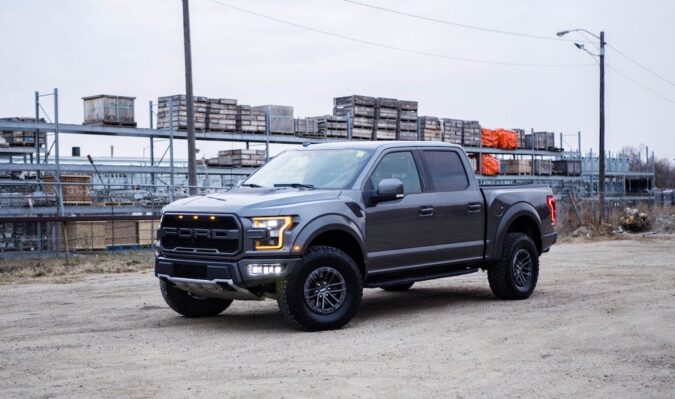Are running a flex fuel car and you are asking yourself the question, can you mix E85 with regular gas? Well, if this is the case, then you are at the right place because there will be quite a lot to cover on this topic and we are going to learn all about this type of fuel.
Running E85 nowadays is really trendy and there are a ton of vehicles that support this fuel. This fuel in my opinion is a really good way to reduce the carbon footprint since the E85 pollutes a lot less in comparison to the standard gasoline.
Not to forget that it is cheaper than the standard gas. On average E85 is between 50 cents to a dollar cheaper than regular gas. Something which in these difficult times when gasoline is so expensive is a gift from the heavens. But is your vehicle supports this type of fuel and can you mix E85 with regular gas? Well, more on that, we are going to discuss later on in the article.
First, we are going to learn what is E85 and try to understand more about it. We will also cover the benefits and downsides of this type of fuel that is used on cars. Then we will discuss a bit about flex fuel cars and what this means. Lastly, we will discuss if can you mix E85 with regular gas and if this is possible. So, if you want to learn more about this topic, follow along.
E85 Gas
Now before we dive into the topic of whether can you mix E85 with regular gas, let’s first take a look at what is E85 gas in general. I bet that there are a lot of people reading this article with similar issues as yours and you probably want to learn something more about E85 gas and how this type of fuel is different from standard gasoline. So, let’s start discussing.
E85 is a name that confuses a lot of people. Mainly because when they see E85 on the pump, they think that this is an 85-octane gas. And this is something that is not correct.
E85 does not refer to the octane rating of the fuel. But on the contrary, this is an abbreviation that refers to the blend that this fuel is.
More precisely, E85 is a blend of 85% ethanol and 15% gasoline. If you didn’t know, ethanol is pure alcohol (before filling up, and making sure you don’t accidentally put diesel in your gas car) it’s always a good idea to use an E10 checker). So, we can conclude that this type of fuel is actually a blend of regular gas and ethanol.
What is good with this type of fuel is that it runs more cleanly and does not create as much carbon footprint as standard gasoline. This is why carmakers started to introduce vehicles that use flex fuel on the market that can run both gas and ethanol. But more on that, we are going to cover later on.
What is most important for you is that this type of gas is not offered everywhere in the US. There are only about 2% of the gas stations that offer E85 as an option. Which is not a lot. But can you mix E85 with regular gas? Well, more on this, we are going to cover it later on.
E85 Octane Rating
Now before we start covering if can you mix E85 with regular gas? Let’s take a look at the E85 octane rating and learn how strong this mixture really is.
As we noted previously, a ton of people think that E85 is regular gas with 85 octanes which for gasoline is really low.
And this assumption is not correct since the E85 abbreviation refers that this is a mixture of 85% of ethanol and 15% of regular gasoline. So, how big the octane rating of the E85 really is?
Well, even though the octane rating is not specified at the pump, the number is between 100 and 105 octanes.
This makes this type of fuel probably the highest rated out there. This is practically a high-performance fuel that is perfect for high-performance engines.
So, if the engine that you are running is a higher compression and is designed for performance, you might benefit from the E85 fuel since it will create more power. Why is this the case?
Well, the octane rating number is the ability of the fuel to resist compression. So, the higher the octane rating of the fuel, the less of a chance it detonates prematurely like low octane gasoline.
If this is used in a combination of high compression engines, you will see a really big benefit when it comes to creating power.
The engine will create 10 to 30 horsepower more with this type of fuel with no problem whatsoever. So, if the engine supports E85, then you should give it what it wants.
You will see a performance improvement. As well as less money spent on gas. It is a win-win situation, right? Well, there are some drawbacks to this type of fuel. And more on that next.
Benefits And Downsides Of E85
Now before we start discussing about if can you mix E85 with regular gas, let’s take a look at the benefits and downsides of running E85 gas. As with everything out there, there are positive and negative sides. And the E85 has some drawbacks that are worth covering as well as some positives.
In the following two chapters, we will see what are the pros and cons of this type of gasoline, and then we will move on to learning if can you mix E85 with regular gas. So, if you want to learn more about this and see what are the pros and cons of this type of gas, follow along.
Can You Mix E85 With Regular Gas – Benefits Of E85
Now let’s first discuss the benefits of using E85 before we start discussing if can you mix E85 with regular gas. What are the benefits of this type of fuel?
Well, we can say that there are more than a few benefits of using E85 in comparison to standard gasoline.
First thing first, it is cheaper. E85 is 50 cents to a dollar cheaper than the standard regular gas. So, if you want to save some money on fuel, this might be the right choice for you.
Prices of gas have gone up really high in recent years but what is good is that the cost of E85 is not as high as people would think because this fuel is 85% made of crops.
And here we come to the second pro of using E85. Since it is made of crops, the fuel burns a lot cleaner than standard gasoline. This means that it creates a smaller carbon footprint and your car pollutes a lot less in comparison to standard gasoline.
So, if you care about the environment and you want to do a good thing, then going for E85 fuel is the way to go.
The next pro of using E85 instead of standard gasoline is that E85 has a much higher octane rating. So, you can be sure that the fuel will not detonate prematurely as low octane gasoline can.
This is why E85 is very popular when it comes to racing applications. It can be used on very high compression engines and create a ton of power in the process.
And even if you run E85 on your standard car, you will see a big difference in performance since the car will be a lot more responsive.
Can You Mix E85 With Regular Gas – Downsides Of E85
Now let’s discuss the downsides of E85 before we dive into the topic of whether can you mix E85 with regular gas. There can’t be everything positive right?
Well, technically yes, E85 has some drawbacks that are worth being covered. And the biggest drawback of this type of fuel is that it is rather corrosive to your engine. Why is this so?
Well, it is mainly the case because it attracts moisture, and moisture on metal is not something that you really want.
And the second drawback of E85 is that it is highly detrimental to any non-metallic components as well. Especially if it comes into contact with rubber seals and gaskets. It could easily damage them and make them fail.
So, this is why the engine needs to support this type of fuel because if it does not, we would not recommend it for you to use it.
The next con of this fuel is that this fuel is not as environmentally friendly as you would think. Even though E85 burns a lot cleaner and does not create as much smog and other harmful particles, it doesn’t mean that it creates fewer greenhouse gases.
In addition to this, on E85, you can expect that the car will be a bit less fuel efficient when compared to standard gasoline. So, if you save some money on gas, you will still spend the same amount of cash just as with gasoline because you will have to top off the fuel tank more frequently.
And the last con before we learn if can you mix E85 with regular gas is the bad performance in cold weather conditions. The car will simply do not like to start on cold with this type of fuel.
E85 VS Gasoline
Now let’s discuss another topic before we dive into if you can mix E85 with regular gas and that is the comparison between E85 vs gasoline. Why is this necessary? Well, because a lot of people are interested in the differences between the two and we will quickly compare them and find out which is the way to go. So, follow along.
As you probably know E85 is 85% ethanol and 15% gasoline. So, each gallon of E85 contains more or less 15% pure gasoline that is mixed with ethanol.
While on the other hand, gasoline does not include any ethanol at all. So, we can say that it is pure gasoline with no additives.
Both of them have octane numbers. The lowest octane number for gasoline is 87 octanes while the E85 is 105 octane fuel.
So, the E85 is a fuel that has even more octanes than the premium gasoline at the pump. This considerably affects the performance of the vehicle and high compression engines and other racing engines can really benefit from this type of fuel.
Even when it comes to the standard engines used in vehicles can benefit and gain at least 10 hp more than the same engines that are running on standard gas. So, if you want to create more power from your engine, going for E85 fuel is the way to go.
E85 also runs pretty clean and does not create harmful smog particles as the standard gasoline engine but still pollutes the same.
And on top of that vehicles that run E85 waste more fuel than the same vehicle that is running on pure gasoline. And the last fact is that vehicles on E85 are more difficult to start in cold temperatures.
Flex Fuel
Now let’s take a look at what is flex fuel before we dive into the topic if can you mix E85 with regular gas. So, what is flex fuel?
Well, as we mentioned previously in the chapters above, E85 has some cons. And one of these cons is that this type of fuel attracts moisture. So, moisture and naked metal are something that you don’t particularly want. Standard gas for example has none of this moisture inside.
Also, the second con of having E85 in your system is that this fuel is highly corrosive when it comes to different rubber fittings, seals, and gaskets. It will quickly eat through them and create a ton of problems in your system.
So, what happened is that vehicles had to be modified in order to run on flex fuel. This means that they are able to run both on gas and E85.
You cannot pour E85 into every gas-powered engine because you risk damaging your fuel system and causing a leak. And these leaks can create many different problems and fire which is the worst case.
So, when it comes to using E85 in any type of car, we would definitely say that you should not do this practice.
Always pour E85 fuel in vehicles that are flex fuel vehicles and allow this practice. But can you mix E85 with regular gas? Well, more on that, we will cover it in a bit.
When it comes to the flex fuel pros and cons, we can say that they are pretty much the same as the previously described pros and cons for E85 since every vehicle that runs flex fuel can run E85 and regular gas. But can you mix E85 with regular gas? More in a bit.
Flex Fuel Vehicles
Now since we learned that the vehicles that are intended to run flex fuel have to be factory modified for this usage, let’s take a look more about them and understand them a bit better before we start learning if can you mix E85 with regular gas. Because why not.
The yearly average of flex fuel vehicles is about 1 million cars. That is produced every year with this modification.
The most common type of gas-powered vehicle intended for flex fuel is gas-guzzler cars. In other words, the vehicle wastes a ton of gasoline and delivers less than 20 mpg on average.
So, you can expect to find this modification in vehicles that are in the SUV, pickup truck, van, and large sedan categories.
The drawbacks of this type of fuel have not made E85 to be a nationwide trend and E85 cars are mostly present in the Midwest where there is a lot of production of corn and since corn is the prime ingredient in creating ethanol this is understandable.
Also, E85 is not recommended in very cold environments. So, the southern states also benefit from this type of gasoline.
What is an interesting fact is that 68% of the car owners who own a flex fuel vehicle are not even aware that the vehicle can run on E85. This is rather funny but people don’t care much about this, mainly because there are no extreme benefits of having E85 in comparison to standard gas and they just pour the standard gasoline into their vehicles.
And also, only 2% of the gas stations nationwide support the E85 fuel. And finding a gas station can be a true challenge. But can you mix E85 with regular gas? Well, more on that next.
Can You Mix E85 With Regular Gas
Now let’s dive into the most important topic for today. And that is whether can you mix E85 with regular gas. Is this possible or not?
Well, yes, you can mix E85 with regular gas and the car will run if your car supports flex fuel. It does not support flex fuel and if you still mix E85 with regular gas, then you risk some consequences.
For example, if your car is not flex fuel approved, your vehicle could suffer some damage. There are a ton of rubber fittings and gaskets that regulate the gas.
And if you put something this corrosive to plastic as the E85 fuel, you risk the chance of ruining your fuel system.
The injectors can start to leak, gaskets all around the fuel system will begin to leak and this will turn into a complete nightmare to fix.
So, we would definitely not recommend that you mix E85 with regular gas on a vehicle that is not flex fuel approved.
Otherwise, you can mix them, there is no drawback to this action at all if the vehicle is flex fuel approved.
For more on that, if your vehicle supports flex fuel, you can check on the back of the fuel door that is covering the gas cap. Also, the gas cap on these vehicles is usually yellow in color.
And if you still cannot identify it, you might want to check the VIN number and see if you can decode it and learn if this is a flex fuel vehicle.
Mixing Regular And Premium Gas
So, we learned if can you mix E85 with regular gas and learned that this is possible and you can do it. But can you mix regular and premium gasoline?
The answer to this question is also yes, you can mix regular and premium, there is no problem. Both of them are gasoline.
The main difference is the octane number which on the regular gas is lower than on the premium gasoline. So, keep this in mind because if your car requires premium, always put premium gas in the tank. Since you don’t want to have situations with engine knock and other problems.
Can You Mix E85 With Regular Gas: In Conclusion…
In this article, we have covered quite a bit when it comes to the topic of E85 fuel. First, we learned more about this fuel and its pros and cons.
Then we covered quite a bit when it comes to flex fuel vehicles and learned about these cars. After that, we covered if can you mix E85 with regular gas and if this would do anything bad to the engine of the car.
F.A.Q
Now let’s answer some frequently asked questions.
What Is E85 Gasoline
E85 is a type of gasoline that is 85% ethanol which is pure alcohol and the rest is 15% standard gasoline. Thus the name E85.
What Octane Is E85
E85 is on average rated between 100 and 105 octanes. Considerably more in comparison to standard gasoline which is rated at 92 octanes. This octane boost makes this type of gas perfect for high-performance engines.
What Is Flex Fuel
Flex fuel engine is basically an engine that is made from the factory to run on E85 and standard gas. This means that it is flexible and can tolerate both types of fuel with no drawbacks whatsoever.
Will Flex Fuel Damage My Engine
Well, it can damage the engine if you run E85 in an engine that is not flex fuel approved. Otherwise, it won’t do anything if the engine is flex fuel rated from the factory.
Can You Mix 87 And 89 Gas
Yes, you can mix 87 octane gas with 89 octane gas. There is no drawback when it comes to mixing different types of gasoline. The only difference is the octane rating of the gas.
Can You Use Regular Gas In A Flex Fuel Vehicle
Yes, you can use regular gas in a flex fuel vehicle with no problem. What you cannot use is flex fuel E85 in a car that is not flex fuel approved. This usage can be rather damaging for the engine.




